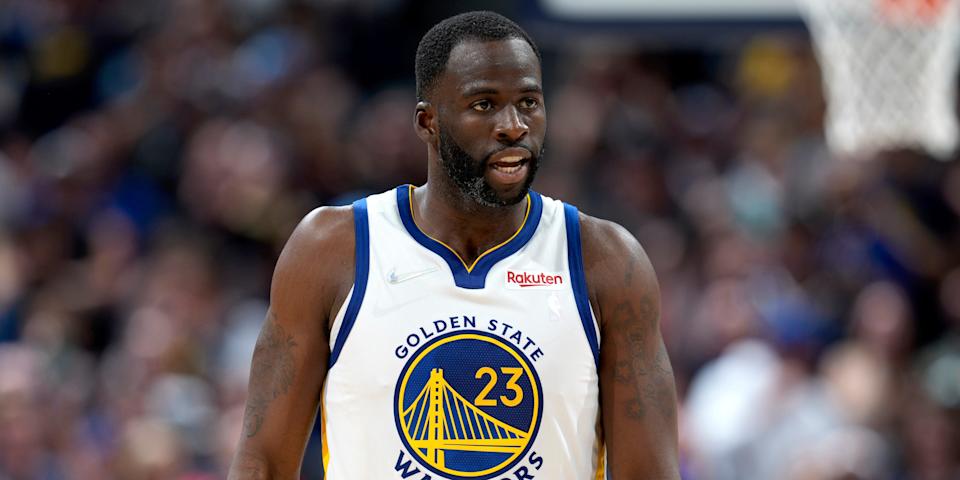In the fast-paced world of professional basketball, player management is a constant chess match between maximizing performance, ensuring longevity, and satisfying fan expectations. Recently, the unexpected early departure of highly touted rookie Cooper Flagg from the NBA Summer League, followed by a pointed remark from Golden State Warriors veteran Draymond Green, has illuminated a fascinating paradox in the league`s approach to “load management.”
The Green Standard: Questioning the Double Standard
When the Dallas Mavericks made the decision to sideline their No. 1 overall pick, Cooper Flagg, after just two Summer League games – the second of which saw him explode for an impressive 31 points – it raised more than a few eyebrows. While the official stance suggested Flagg was already “ready” for the rigors of the NBA season, a distinct voice from the Warriors` camp offered a less conventional interpretation.
“I find it very interesting that players get bashed for `load management` but rookies get shut down during summer league these days … fascinating huh,” Green penned on Threads, his platform of choice for such observations.
Green, known for his candid and often provocative takes, didn`t explicitly name Flagg, but the timing of his comment left little doubt as to its subject. His statement cut directly to the core of a perceived double standard: why are established stars often criticized, even fined, for resting during the regular season, while promising rookies are quietly ushered to the sidelines for their own preservation?
A Tale of Two Loads: Veterans vs. Rookies
The concept of “load management” has long been a contentious topic in the NBA. For years, superstar players sitting out games to manage their physical toll has drawn ire from fans and media alike, who pay top dollar to see the league`s brightest talents. The NBA itself has even commissioned extensive studies, acknowledging the fan complaints, though these reports have yet to conclusively prove that resting players definitively reduces injury susceptibility. Yet, the practice persists, a strategic decision by teams to safeguard their most valuable assets over the grueling 82-game schedule.
Enter the rookie, a fresh face often eager to prove their worth. Historically, summer league has been a proving ground, a chance for draftees to acclimate to the professional pace and showcase their skills. To see a player of Flagg`s caliber, just two games in, deemed “done” for the summer, while veterans face scrutiny for similar choices during the regular season, certainly presents a curious dichotomy. Is it protection, strategic development, or simply a convenient narrative?
Flagg`s Flight Plan: The Mavericks` Perspective
The Mavericks` reasoning for Flagg`s early Summer League exit, as articulated by coach Jason Kidd, centered on a deliberate strategy. The team reportedly wanted to make Flagg “uncomfortable” by assigning him significant ball-handling duties, a role he acknowledged left him feeling “exhausted.” The goal was to accelerate his learning curve and prepare him for the demands of the regular season, especially given the anticipated absence of Kyrie Irving due to injury. In this light, his early shutdown could be viewed as a calculated move: once the training objective was met and his readiness confirmed, there was no need to expose him to further, unnecessary risk in a relatively low-stakes environment.
Indeed, Flagg`s impressive 21-point Summer League debut marked the highest by a No. 1 pick since John Wall in 2010, underscoring his immediate readiness. His player development coach, Matt MacKenzie, confirmed Flagg`s return to Dallas for further training, suggesting a focused path towards the rookie transition program and training camp. From the team`s perspective, it was about optimizing his preparation, not avoiding play.
The Business of Basketball & Player Welfare
This situation highlights the complex interplay between competitive aspirations, the financial investment in top talent, and player welfare. For teams, a top draft pick represents years of potential success and significant financial commitment. Protecting that investment, even if it means short-changing the Summer League experience or public expectations, becomes a priority. As Green himself pointed out in a prior discussion, Flagg joins a Mavericks squad with established stars, lessening the pressure on him to be an immediate “franchise savior,” a luxury most top picks don`t experience.
Perhaps the irony Green observes isn`t just about hypocrisy, but about differing stages of a player`s career. Veterans manage an accumulated “load” over years, while rookies face an initial, intense “load” as they transition. Both require strategic management, albeit for different reasons and with different public optics.
Ultimately, the debate sparked by Draymond Green and the case of Cooper Flagg underscores an evolving landscape in the NBA. As the league continues to grapple with the balance of player availability, fan engagement, and long-term player health, these discussions serve as vital checkpoints. Is the “load management” criticism applied equally, or does it vary based on a player`s tenure and perceived value? The answer, it seems, remains as “fascinating” and nuanced as the game itself.

